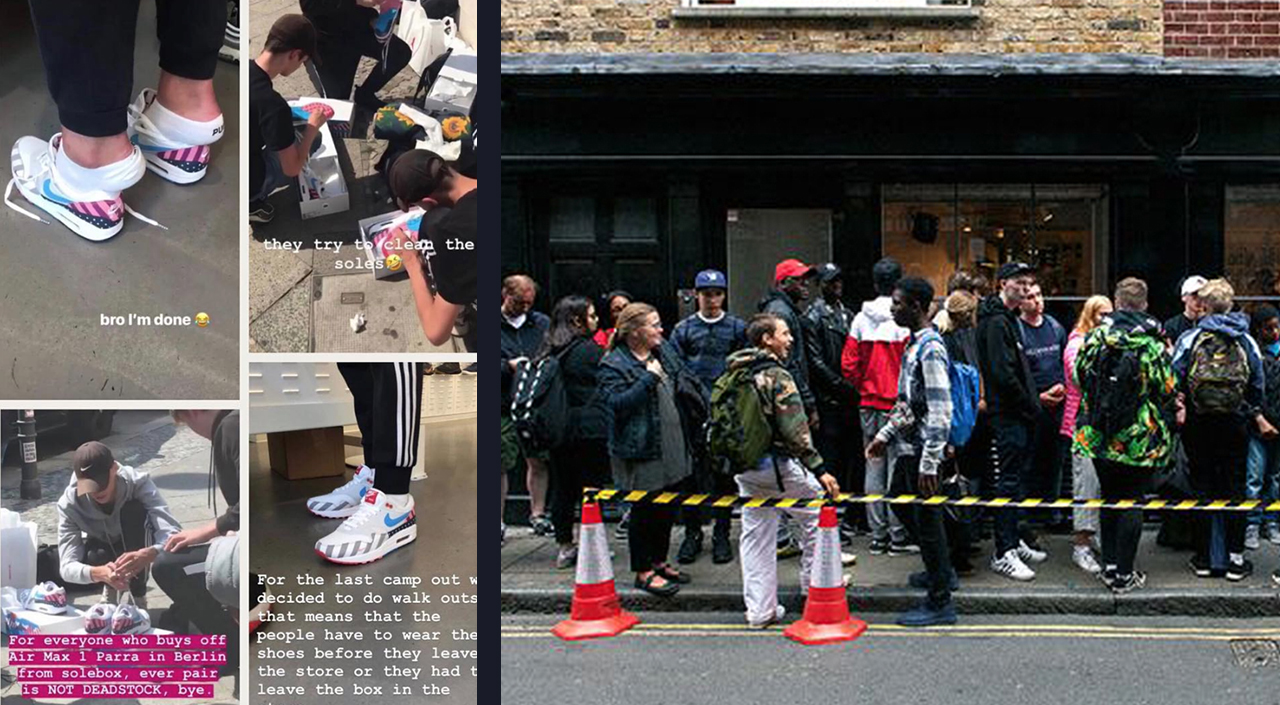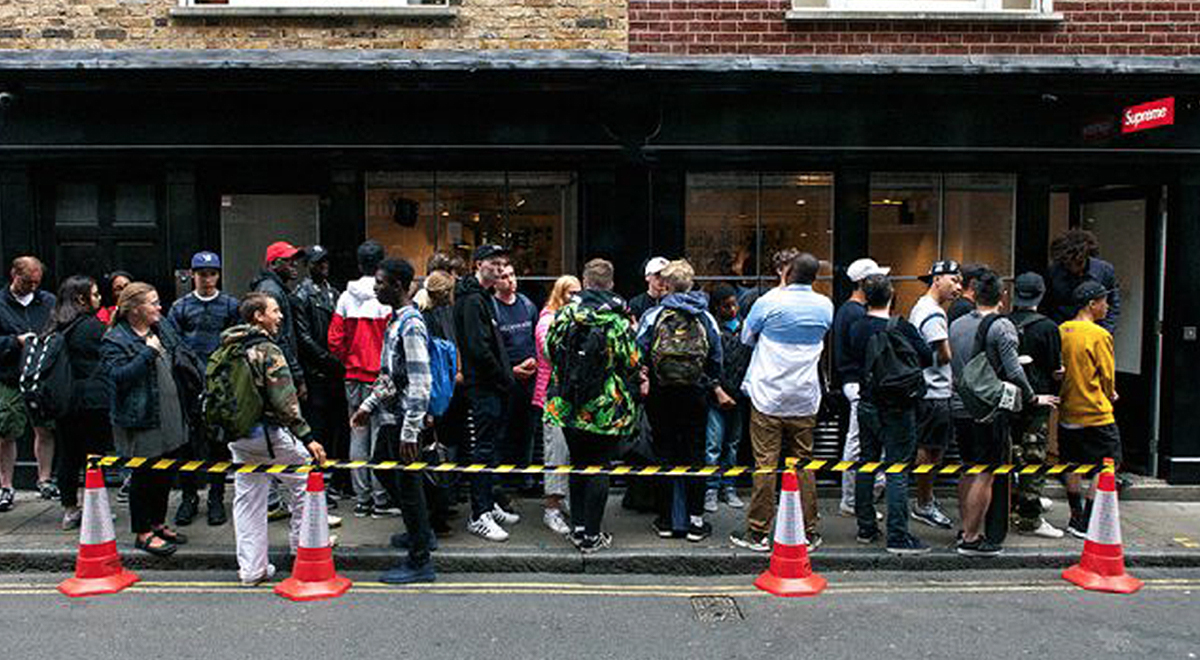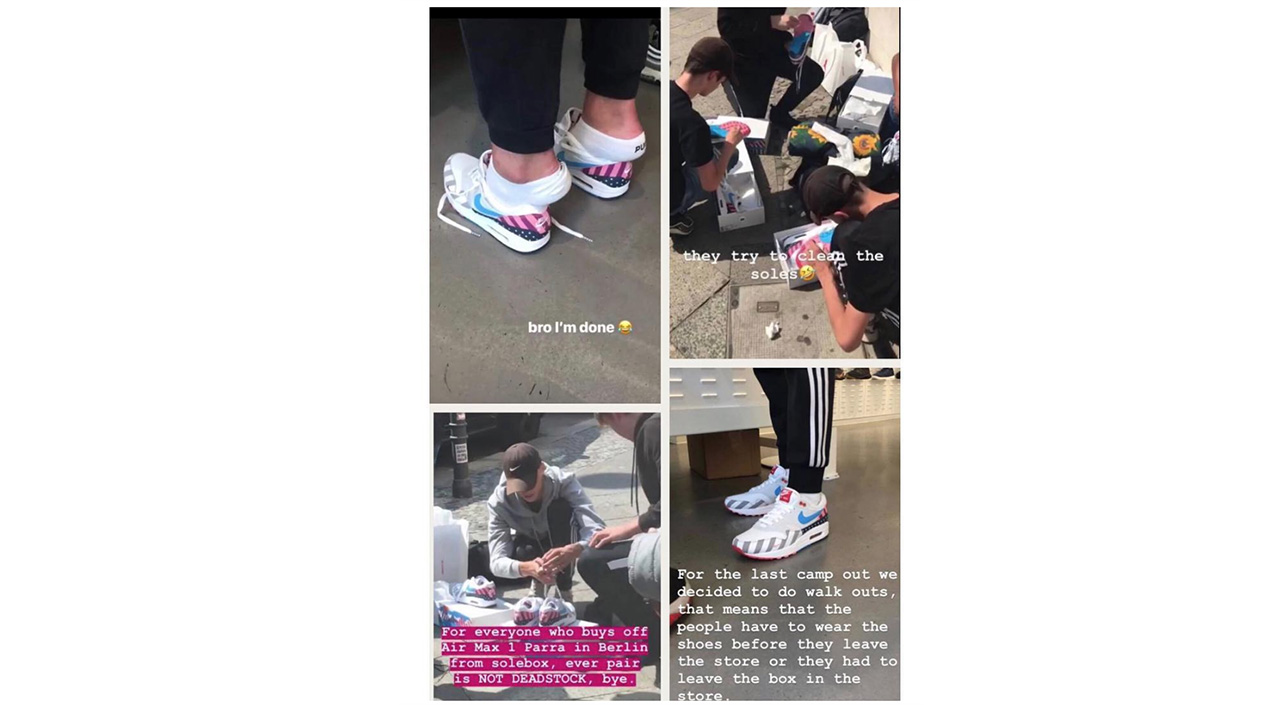



Over the years, sneaker stores have come up with a number of ways to prevent resellers from purchasing limited edition sneakers only to flip them. Methods have been devised to prevent sneaker bots and utilizing online raffles for a more randomized distribution, just to name a few. But there are more controversial ones yet, and here’s where our list of three comes in:
1. Solebox’s Parra x Nike Air Max 1 ‘walk out’ release


Solebox customers were in for a surprise when the Berlin retailer refused to allow customers to leave the store without putting the Parra x Nike Air Max 1 on their feet. According to Sneaker Freaker, this was done to deter resellers from selling the pair as deadstock.
The ‘walk out’ saw some sneakerheads trying to wear their shoes out as little as possible and tiptoeing out of the store. Were they resellers, though? Your guess is as good as ours.
The Solebox mandated walk of shame inspired artist Laro Lagoste to create a meme depicting the scenario. Needless to say, that piece of work has now gone viral. In case you haven’t seen it, here it is.
2. Limited Edt’s Cream White Yeezy Release: No box, no receipt
Singapore sneaker retailer Limited Edt got sneakerheads in a tizzy when it announced it wasn’t providing a box or a receipt to people purchasing the Cream White Yeezys in April last year.
This was a controversial move as a box and a receipt are the two items used as proof of authenticity when reselling. Instead, what customers received was a receipt number and a complimentary bottle of textile protectant from Liquid Glass.
While it is not known just how effective the deterrent was, it sure made things more complicated for resellers. We interviewed a couple of prominent sneaker collectors in Singapore for a story on this last year, and most of them felt the release method was “refreshing”.
3. Adidas New York’s reseller radar method
In February last year, at the launch of Adidas’ Ace 16 Purecontrol Ultra Boost at the brand’s new 5th Ave flagship store in New York City, the brand released a statement that read that the store had the right to refuse entry to anyone deemed a reseller.
Turns out the method wasn’t all that effective, unfortunately, as several prominent resellers were allowed to enter the store and managed to purchase the Ace 16 Purecontrol Ultra Boost, pissing everyone else off in the process.
What are your thoughts on these controversial methods of deterring resellers? Are they effective? Let us have your thoughts in the comments section below.
Read More: Supreme Reseller Arrested Outside London Store: What’s The Real Story?